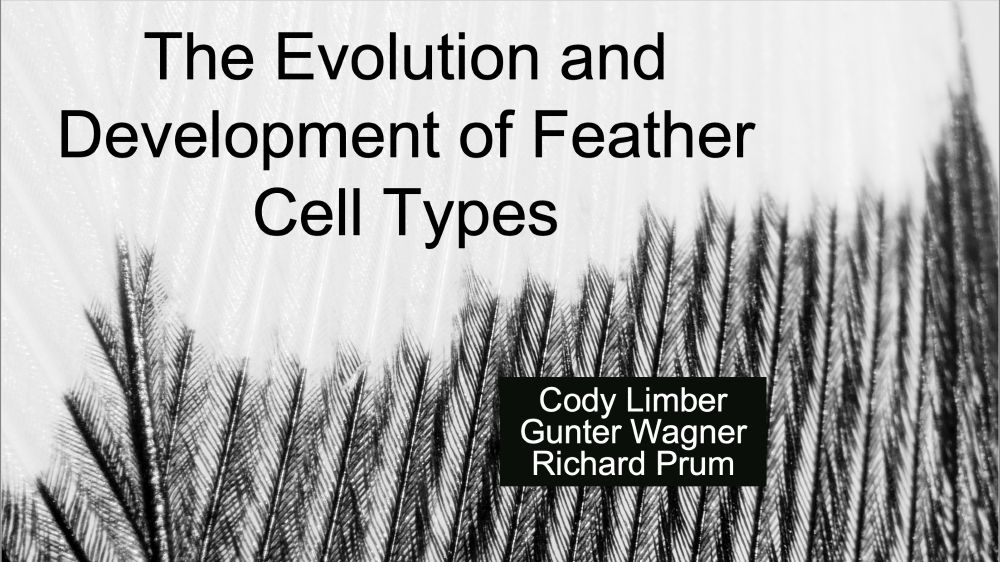Cody Limber
@codylimber.bsky.social
100 followers
140 following
13 posts
Evolutionary Developmental Ornithologist, PhD candidate @Yale EEB interested in feather cell types, cell types evolution, and all things birds
https://www.codylimber.com/
Posts
Media
Videos
Starter Packs
Pinned
Cody Limber
@codylimber.bsky.social
· Aug 26

Genetic Characterization of the Cell Types in Developing Feathers, and the Evolution of Feather Complexity
We used single cell sequencing to investigate the cell types of developing chicken feathers. From these data, we are able to describe the transcriptional profile of feather cell types, look at their ....
doi.org
Cody Limber
@codylimber.bsky.social
· Aug 26
Cody Limber
@codylimber.bsky.social
· Aug 26
Cody Limber
@codylimber.bsky.social
· Aug 26

Genetic Characterization of the Cell Types in Developing Feathers, and the Evolution of Feather Complexity
We used single cell sequencing to investigate the cell types of developing chicken feathers. From these data, we are able to describe the transcriptional profile of feather cell types, look at their ....
doi.org
Reposted by Cody Limber
Cody Limber
@codylimber.bsky.social
· Aug 10
Cody Limber
@codylimber.bsky.social
· Jun 18
Cody Limber
@codylimber.bsky.social
· Feb 17







